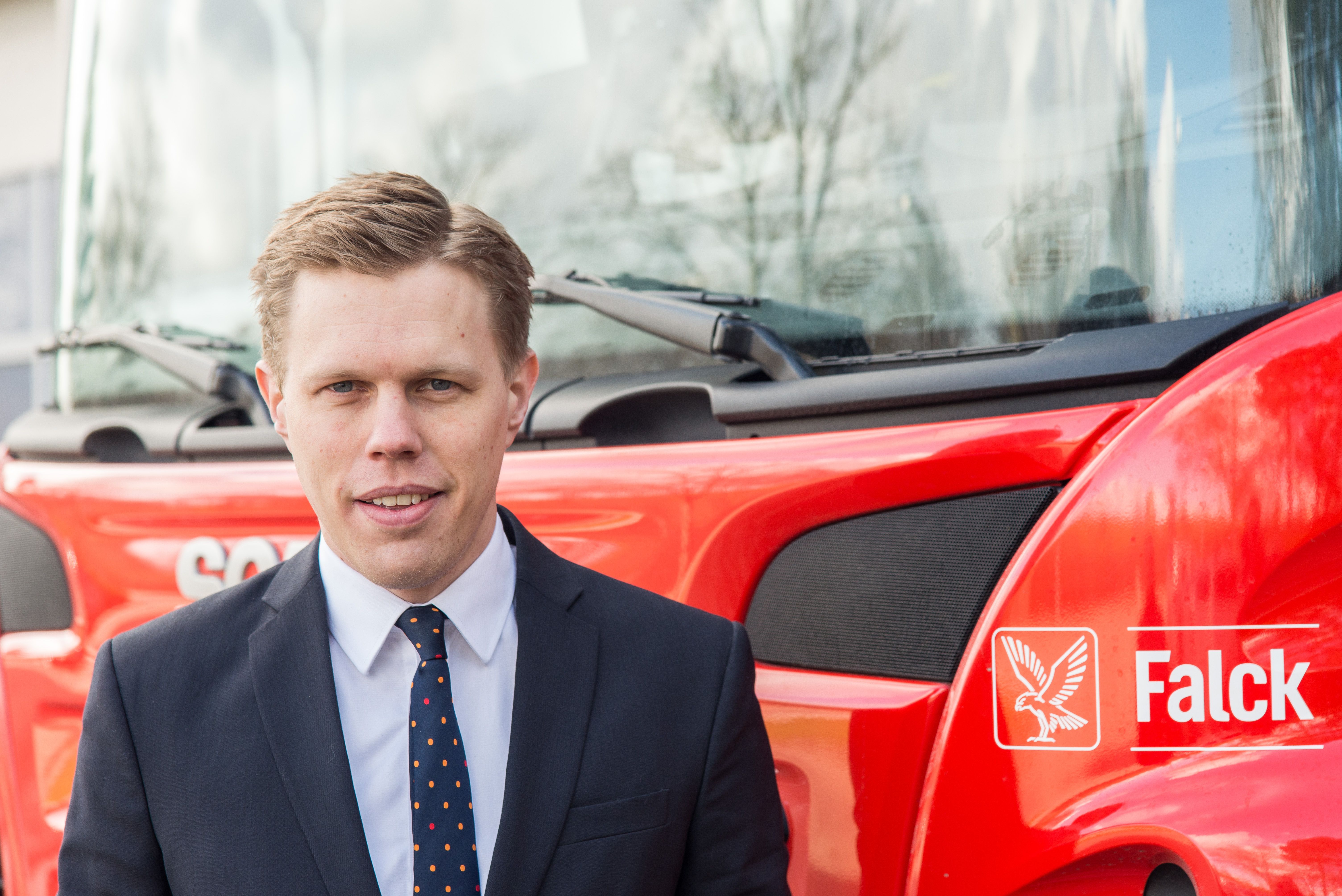What’s your job title and what do you do at Falck?
I’m a senior project manager, which means I manage the process of finding and implementing systems to drive our business. This involves finding the most appropriate system, configuring it and adjusting it to our business.
What do you like about your job?
I like the level of freedom I get. There is no-one telling me exactly what to do. There are many ways to solve problems and it is up to me to find the best way. There is no ‘right’ and ‘wrong’ as there is with other jobs – there are many possible rights (and many possible wrongs, I suppose).
How long have you worked for Falck?
I’ve worked for Falck for almost two years.
Falck is a well-established company, are there any old traditions that have been passed down through the years?
Definitely. Falck is a company with a long history and a lot of traditions. The company does a lot to bring people together. A fun tradition is that at celebrations we have our own ‘Falck hurrah’. You say hurrah three times as normal, but at the end you shout Falck!
There are also more serious traditions. On the anniversary of the company being formed, the group management visits the grave of Sophus Falck, the founder. And there are services commemorating the people who have died in service.
In what ways can you feel that Falck is an international company?
I can feel it in many ways. I have a number of international colleagues – my immediate boss is from Israel and I have a number of colleagues from Spain. Also, when I open my email inbox, I’m currently running projects in Sweden, Norway, Germany and Sri Lanka. This gives a much more diverse picture of Falck than just its Danish profile.
Because Falck is such a strong Danish brand, it can be surprising to see it in different settings. I recently received a video clip from the Sri Lankan Falck advertising campaign. It was shot as a light-hearted commercial and it was especially fun to hear ‘Falck’ pronounced and discussed in a Sri Lankan accent.
To a non-Scandinavian, Sweden and Denmark seem culturally similar. What are the biggest differences living and working in Denmark?
There are many small differences. One of them that I think about is that, in Sweden [my home country], there is a common proverb, ‘Skynda långsamt’, which literally means ‘hurry slowly’. It’s generally used to say that it’s a bad thing to throw yourself into things you haven’t thought about 100 percent. There is a difference in Danish culture generally and at Falck specifically. Here it’s a good thing to be able to throw yourself into things you haven’t completely thought through – and find a way to succeed. You do everything you can to eliminate risk, but at some point you need to go for it and make the best of what happens. It’s better to do something than not to do something.
What’s the best thing about working at Falck?
Falck is in a unique position. Today it’s a global company, but it is still organising itself and adapting to its global presence. That’s a fascinating process to be involved in and makes working here very interesting.
I also appreciate my colleagues. Something I’ve noticed is that people very rarely use their power to force other people to do something. For example, a senior manager wouldn’t use his job title to get something done. This makes people more equal because anyone with the right arguments can get things done. It’s having the best suggestion that counts – not the biggest office.
What characterises employees at Falck?
Falck is filled with ‘doers’ – people who are not afraid to go ahead and do things. This is very deep-rooted in the DNA of the company. Providing the kind of services that we do, you need people who can take action.















